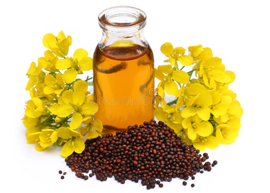
10 factors to consider while choosing your cooking oil
Confused about which oil is best for you? This crisp comparison of refined and cold-pressed oils will help you decide.
With the multitude of cooking oils flooding the market today, and each of them making tall health claims, it can be quite difficult to decide what is good for you and your family. Here are 10 factors that’ll help you make an informed choice.
| Refined Oils | Cold-Pressed Oils | |
| Seeds | Made from low-oil bearing seeds unsuitable for mechanical press, such as sunflower, soy, palm, cotton and rice bran. | Traditionally made from high quality native seeds of sesame, mustard, coconut and groundnut that are suitable for cold-pressing |
| Extraction method | Uses hexane solvent – a toxic chemical that can extract 99% of oil from seeds | Uses a traditional ‘Kachchi Ghani’ – a large mortar and pestle that extracts about 80% of oil from seeds. The oil cake residue serves as nutritious cattle-feed. |
| Chemicals | Degummed, deodorised, bleached and neutralised using chemicals. | No chemicals used at any stage. Only simple filtration |
| Temperature | Extracted at high temperatures going upto 110 degrees C that kill essential nutrients | Extracted at low temperatures that do not exceed 50 degrees C |
| Batch Sizes | Mass produced in large batches | Made in small batches and extracted slowly over 8 to 12hours |
| Appearance | Standard, consistent and clear.
Zero residue |
Rich, dark colour that varies from batch to batch May contain light residue |
| Nutrient Value | High in saturated fats and bad cholesterol, linked to chronic illnesses like heart disease and Diabetes | High is MUFA (good cholesterol)
Has anti-inflammatory, antimicrobial, antifungal and antibacterial properties |
| Social Impact | Mass produced by large corporations, using heavy machinery and chemicals. | Promotes small-scale artisanal enterprises that generate livelihoods for rural populations
Reviving the traditional Indian ghani – an age old Indian technique. |
| Environmental Impact | Encourages large-scale cultivation of palm, soy and GMO cotton that are detrimental for the environment | Promotes the cultivation of native organic seeds and ethical growing practises. |
| Taste and Flavour | Flavourless and odourless | Rich in aroma and flavour |
Since (year), Katori has been producing their own in-house cold pressed Mustard Oil made from the finest quality chemical-free native mustard seeds, grown by our very own network of small and marginal farmers across Rajasthan. Click here to give it a try.